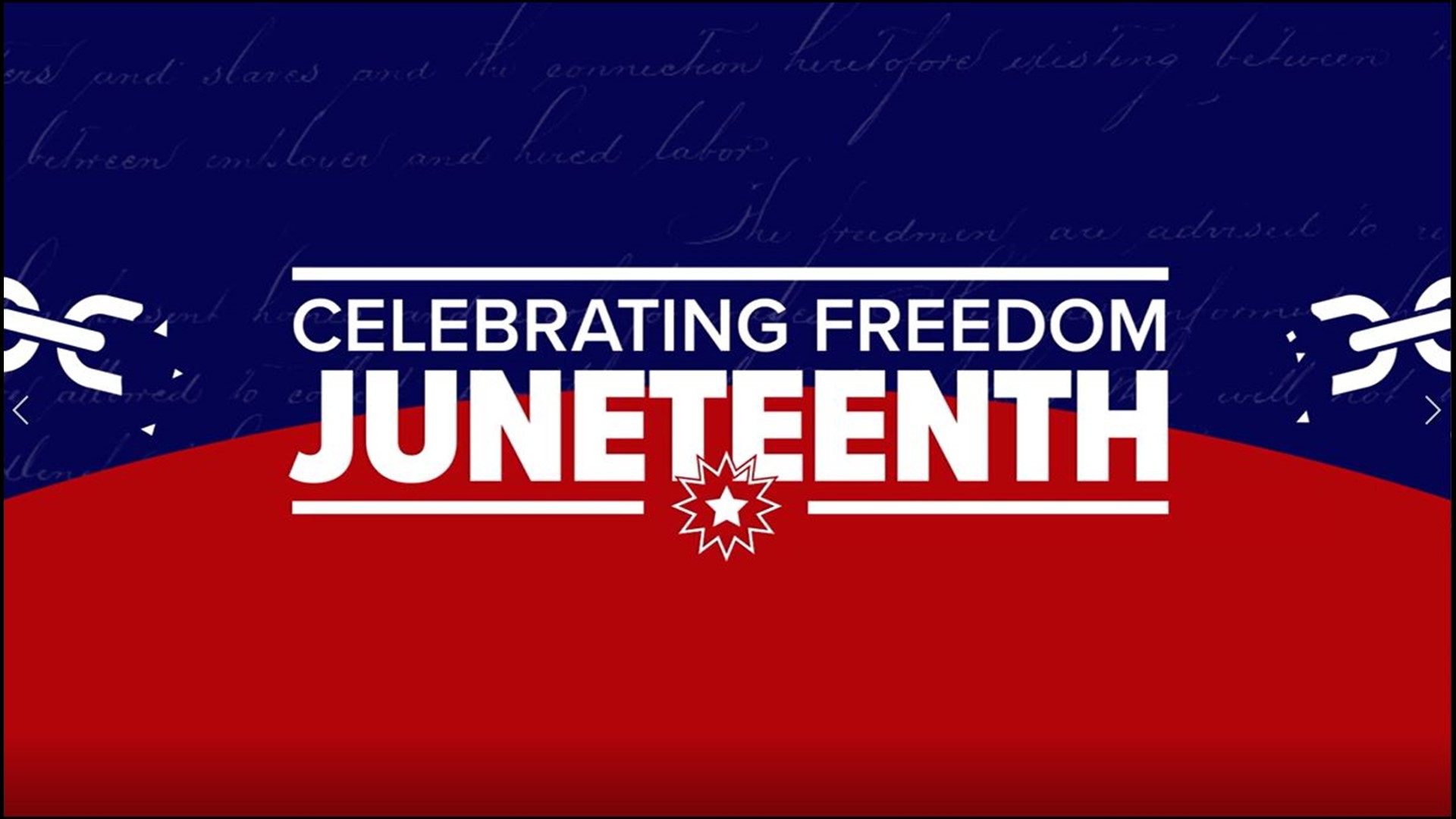SEATTLE — Juneteenth, short for June nineteenth, is a federal holiday in the United States commemorating the emancipation of enslaved Black Americans.
Juneteenth National Independence Day is celebrated on the anniversary of the order issued by Major General Gordon Granger on June 19, 1865, proclaiming freedom for slaves in Texas, over two years after President Abraham Lincoln issued the Emancipation Proclamation.
Juneteenth is considered the longest-running African American holiday and has been called the country’s second Independence Day.
The history of Juneteenth
Juneteenth began in the city of Galveston, Texas after the end of the Civil War with early celebrations dating back to 1866. At the end of the Civil War, slave owners migrated more than 150,000 Black Americans to Texas.
"Even though the Emancipation Proclamation was made effective in 1863, it could not be implemented in places still under Confederate control. As a result, in the westernmost Confederate state of Texas, enslaved people would not be free until much later," describes the National Museum of African American History and Culture.
On June 19, 1865, Granger and Union Army troops were sent to Texas to enforce President Lincoln's Emancipation Proclamation and announce that the state's 250,000 enslaved Black Americans were free.
Texas became the first state to officially make Juneteenth a holiday in 1979 with other states following. President Biden signed into law in 2021 a resolution to establish Juneteenth as a federal holiday.
“This is a day of profound weight and profound power, a day in which we remember the moral stain, the terrible toll that slavery took on the country and continues to take,” Biden said when he signed the legislation.
Juneteenth is the first federal holiday to be proclaimed since Martin Luther King Jr. Day was established in 1983.

